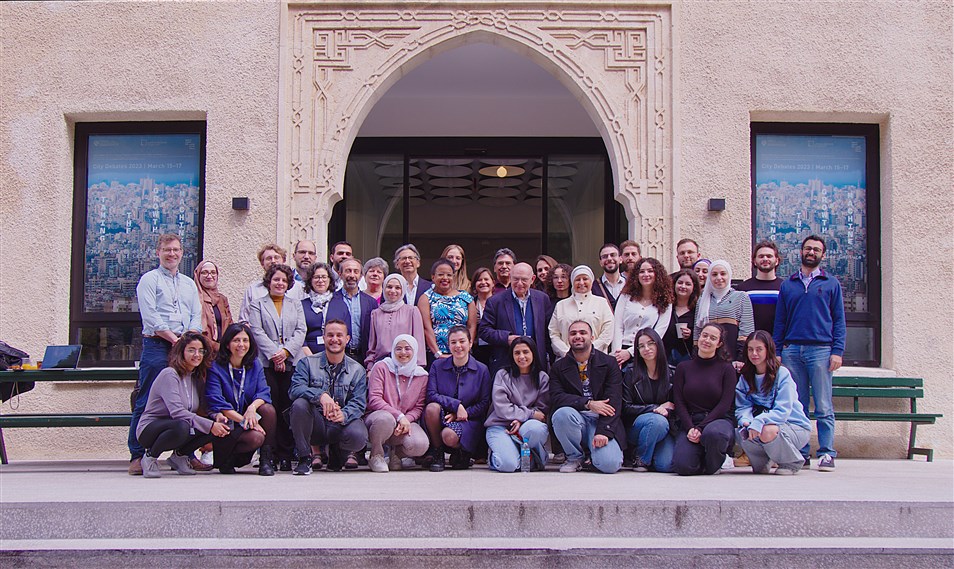City Debates 2023 - Recap Video
How can we make our cities more livable when their most essential component, land, has become a global financial asset? To think through this challenge, the Beirut Urban Lab and the Graduate Programs in Urban Planning, Policy, and Design collaborated with the Lincoln Institute of Land Policy to hold the 19th edition of City Debates 2023. Titled “Taming the Growth Machine: The Promises and Pitfalls of Land Value Capture,” the conference brought 20 scholars to Beirut in Spring 2023.
City Debates 2023 explored the prospects and challenges facing the introduction of progressive land tools in Lebanon and the region. The conference theme was inspired by the successful experiences of planning authorities across several national contexts where adopting a Land Value Capture (LVC) framework allowed for progressive urban planning measures. The conference curated an informed discussion of LVC tools and brought examples of possible pathways through which they financed planning interventions such as infrastructure developments and affordable housing. Speakers came from various regional and international contexts and spanned academic, non-profit, and professional sectors.
Two keynote addresses allowed us to frame the discussions, defining Land Value Capture, its promises, and its possible shortcomings. Five panels shared approaches, considerations, success stories, and setbacks related to the application and theorization of LVC.
Watch the recap video of City Debates 2023 here.
Two keynote addresses allowed us to frame the discussions, defining Land Value Capture, its promises, and its possible shortcomings. Five panels shared approaches, considerations, success stories, and setbacks related to the application and theorization of LVC.
Watch the recap video of City Debates 2023 here.
Conference Proceedings
The event opened on Wednesday March 15 in the evening with the first keynote presentation by Dr. Enrique Silva, the Vice President of Programs at the Lincoln Institute of Land Policy. In his presentation, Silva discussed how - in contexts where neoliberalism has rendered land costs prohibitive - LVC empowers public authorities seeking to improve public infrastructures to reap some of the increases in property values and reinvest them in projects that serve a common interest.
The debates unfolded on Thursday, March 16, with three panels and a second keynote. Watch them here:
Panel 1: Opportunities for Land Value Capture
Panel 2: Insights from Beirut
Panel 3: Land Value Capture & Development, Developers
Panel 1: Opportunities for Land Value Capture was centered around opportunities for LVC and urban development and featured Deena Khalil (American University of Cairo), Nikos Karadimitriou (UCL), and Richard Dunning (Liverpool University). The second panel, Insights from Beirut, presented housing initiatives from Beirut where apartments and entire residential buildings are treated as safety deposit boxes while developers and property owners have helped foster a regulatory environment that protects speculators and reduces property taxes. The panel presented the housing-related projects of Public Works Studio (the Housing Monitor, The Land Policies Observatory) and Beirut Urban Lab (namely City of Tenants, Precarious Lives, and the Beirut Built Environment Database). Panel 3: Land Value Capture & Development, Developers discussed the Land Value challenges in Urban Africa, France, and Lebanon as presented by Tom Goodfellow (Sheffield University), Sonia Guelton (Parisian School of Urban Planning and Studies), and Mona Khechen (American University of Beirut) respectively.
The second keynote, “No Future? Banking on Future Land Values during Uncertain Times,” was presented by Rachel Weber, professor of Urban Planning and Policy at the University of Illinois at Chicago, where she researches topics in urban economic development, real estate, and public finance. In her keynote, Weber warned that, despite its promises, LVC might be counterproductive if public authorities are incentivized to benefit from land market interests to the point that they join in speculative practices rather than combat them. Worse, the promise of long-term profits led to, in Weber’s words, foreclosing the future by accepting long-term deals that tie up municipal authorities to practices and actors that may not serve the city’s best interests.
City Debates 2023 was concluded on Friday, March 17, with two panels and a roundtable.
Watch Panel 4: Housing and Value Capture and Panel 5: Making It Happen.
Panel 4: Housing and Value Capture featured Francisco Sabatini (Universidad del Bío-Bío), Mariona Segú (CY Cergy Paris University), and Şevkiye Şence Türk (Istanbul Technical University). Panel 5: Making It Happen was presented by Astrid Haas (Independent Urban Economist), Mohamad Nada (World Bank) and Claudia Hitzeroth (Development Action Group, South Africa).
The roundtable, moderated by Mona Harb, Professor of Urban Studies and Politics at AUB, focused on lessons learned from other contexts and pathways of change in Lebanon. The roundtable hosted Dr. George Maarawi, Director General of the Land Registry and General Manager of the Ministry of Finance, Professor Weber, Dr. Silva, and Helen Rourke (Program Director at Development Action Group), and Professor Mona Fawaz (BUL). It explored ways in which the discussion can be made relevant to today’s Lebanon.
